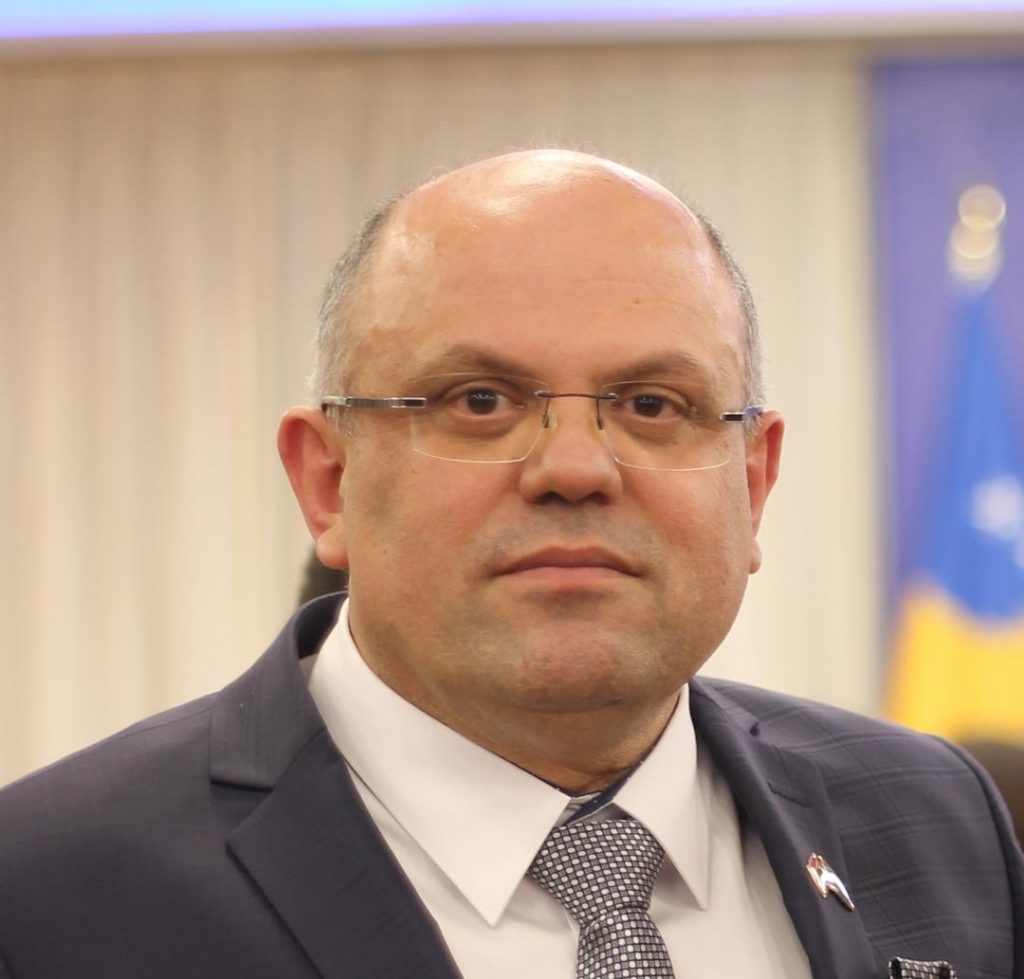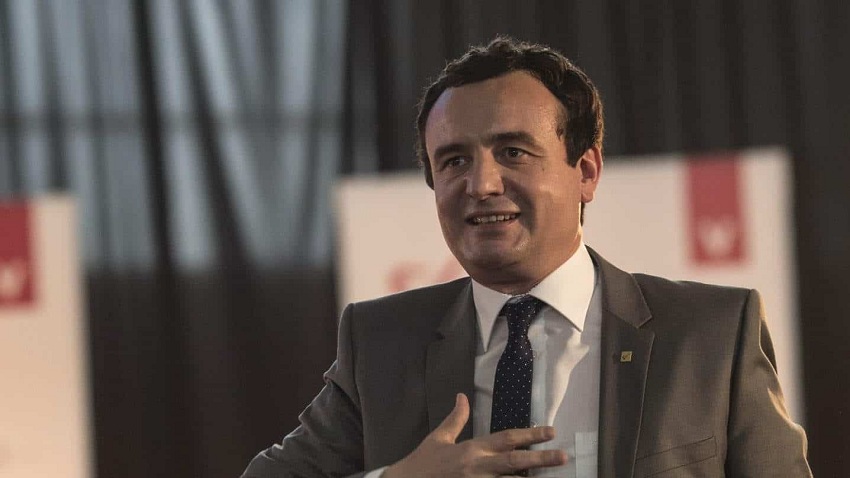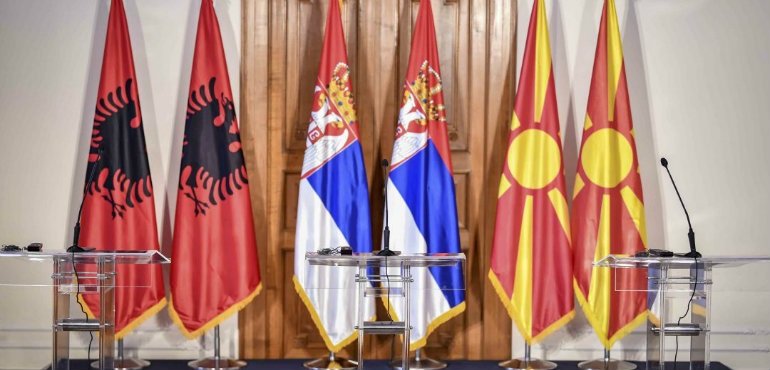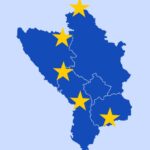The initiative of establishing a Western Balkans Schengen, or as commonly referred ‘mini-Schengen’ launched by Albania, North Macedonia and Serbia has caused ripples in public debate with many voices pro and against. Tirana Observatory asked experts and policy-makers on their thoughts on the necessity, feasibility and impact of this new regional platform that has yet to overcome the divisiveness of its original launch. Their answers provide a kaleidoscope of valuable insights of what to keep an eye on going forward.
-How do you evaluate the necessity and feasibility of the Western Balkans Schengen initiative (mini-Schengen) launched by Albania, North Macedonia and Serbia? What are the achievements that can be realistically expected from it?
-Do you believe this joint initiative can serve as an alternative in the context of the temporarily suspended EU integration perspective?

Chairman of the EU Integration National Council
First Mini Schengen is a misnomer. No sort of a EU’s Schengen Accord can be reached in the Western Balkans reality.
As for the eliminating trade barriers CEFTA remains the forum and the instrument for achieving anything real. It seems that realism has prevailed as it is centrally referred in the Ohrid declaration. Furthermore new trade arrangement is conditioned by the commercial agreement any WB6 country has with the EU. The latter has to prevail.
As for citizens crossing the regional state border showing just their IDs this is already in place since a decade ago. In the few remaining cases where the passport is required you need a simple bilateral accord.
Also the recognition of diplomas and work permits is a mere bilateral issue. If there is will it could be done. I think the Montenegro government was right in calling it superfluous. But if meeting near the Hungarian border, then on the lakeshore and before Christmas on the seaside can help find that needed will than it is welcome. But any talk of some regional multilateral accord seems misplaced. The government overuse for domestic propaganda is damaging it. The non inclusion of Kosovo and perhaps Bosnia creates a new unnecessary problem. And Serbia’s accession to the Eurasian Economic Union is an issue.
Theoretically the Western Balkans is too small and to poor to form an alternative to the EU. Politically is a hell of a thing to say. The “turning away from the EU” rhetoric of President Vučić and the EU unfriendly tones of PM Rama in Ohrid are preoccupying. Albania should concentrate on fulfilling the conditionality required for a positive EU decision in May 2019. Straying around for photo ops wouldn’t help.
GENC POLLO

Charge d’Affaires of the Republic of Kosovo to Albania
At first, the joint statement of the three countries sounds delightful, but beyond that, this initiative can be described as hasty. On the one hand Belgrade is making efforts to establish the mini-Schengen, but, on the other hand it’s quite unbelievable how Belgrade, aggressively continues to oppose Kosovo’s statehood, by not recognizing the documents of the Republic of Kosovo, impeding the movement of goods and citizens of Kosovo, and beyond that continues its territorial claims on Kosovo. Furthermore, in every meeting, where the flag and other symbols of the state of Kosovo appear, Belgrade officials obstruct or boycott such meetings. In this atmosphere, of course, Kosovo has no expectations from this initiative, which seems more like a political demagogy of Belgrade, which makes efforts to present itself as a constructive and important actor. Moreover, history has taught us that Balkan initiatives have always aimed to minimize the weight of the Albanian factor. Therefore, we should be careful about the steps we take. No initiative and no other effort can offset Kosovo’s historical aspirations towards EU membership.
SYLË UKSHINI

Head of the Political Science and International Relations Department, University of New York in Tirana
At first glance, it seems rather strange that an initiative that rivals EU integration path right after the denial of opening the negotiations and concurrently excludes Kosovo can be either necessary, or desirable from a political point of view. From the economic perspective also the prospects are a bit unclear because Albania, Serbia and Northern Macedonia are part of CEFTA and other regional economic agreements that already facilitate trade and movement of goods and services, albeit with not much success. Also there is not much relation with the connectivity agenda of the European Union or the philosophy of the Berlin process initiated by the Berlin Process in 2014.
In addition, there is very little substance so far and the information is scarce to judge for the feasibility in the long run of the initiative. Also, currently there exists a lot of mistrust between premier Rama and the whole Kosovo’s leadership who disagree with Rama in toto about the project of the mini-Schengen. Without “crossing the Rubicon” and agreeing in principle with Kurti, Mustafa and Osmani that represent the current political leadership of Kosovo, as well as Thaçi, Rama cannot possibly and reasonably expect that Kosovo will readily join this initiative.
On the other hand, the strong backing by US Deputy Assistant Secretary of State Mathew Palmer is a strong international signal that the Americans if not sponsors of the initiative, at least are strong backers of a process that can relieve tensions in the Western Balkans, increase cooperation that will benefit the populations of each country, as well as a guarantee that Kosovo will not be left out of it in the near future.
The initiative of Serbia, Northern Macedonia and Albania that in the second Ohrid meeting were also joined by the Chairman of the Council of Ministers of Bosnia-Herzegovina and Minister of Economy of Montenegro, cannot in any case aspire or seek to be an alternative to the European integration pathway for the Western Balkan countries. Not only because countries such as Montenegro have a clear and resolute promise for a faster integration process due to success of the fulfillment of the obligations carried by the negotiations chapters opened so far, but also because all these countries, including Kosovo, Serbia and Bosnia-Herzegovina aspire to join the European Union sometimes in the next ten years or so. This common endeavor of Western Balkan countries, whose trade relations are also directed toward EU countries, are even more accentuated in the case of Albanians of Albania, Kosovo and Northern Macedonia which for cultural and geopolitical reasons see no other future, but full commitment toward the realization of European accession of these three countries in particular.
ILIR KALEMAJ

President of the Republic of Kosovo
“As President of the Republic of Kosovo, I’d like to inform citizens that I have refused to participate in the Ohrit Summit. The decision is based on several reasons. First of all, Serbia did everything to prevent Kosovo’s participation in the first summit of this new regional initiative. Secondly, EU and NATO integration are Kosovo’s only vision. Therefore, we do not want to replace our Euro-Atlantic perspective with any other regional initiative. Thirdly, this regional initiative is absurd for as long as Serbia and Bosnia and Herzegovina do not recognize Kosovo’s independence.”
HASHIM THAÇI

Former Minister of Foreign Affairs, Republic of Albania
In July 2017, the Western Balkan Summit held in Trieste, with the participation of representatives from EU member states and Brussels it was agreed to adopt a multi-annual action plan to create a Regional Economic Area in the Western Balkans. The EU Commission agreed to support this initiative with a package of 7 million euros. CEFTA and its additional protocol is the basis for developing trade between member countries. The Regional Economic Area and the action plan include dimensions such as trade, investments, mobility and digital markets. As part of the larger initiative of EU and Western Balkans exists the Business forum, Youth and Civil Society Forum. In addition the EU signed the Transport Community Treaty with the 5 Western Balkan countries, (Bosnia did not sign). Hence it is not clear why there is a need for another initiative of only three countries? As it seems there is no additional value and no need for another initiative. This initiative does not serve and cannot serve as an alternative for EU integration. One could argue that this initiative serves President Vucic and PM Rama. Since taking power in 2013 Rama broke with the well established and traditional foreign policy of Albania toward Serbia and Kosova. While Albania aims and promotes good relations with Serbia, it cannot speak in any way on behalf of Kosova. However since 2013 phrases like Albanian-Serb reconciliation, where Kosova as a separate state identity disappears, started to appear, and meetings between Rama and Vucic intensified, meeting several times in a short period of time. Serbs have always wanted to discuss with Tirana about Kosova and bypass Prishtina. Because if you talk with Albania it means you have to have a compromise,, Albanians cannot gain everything, Serbs have to get something back, which means division of Kosova. So much did Rama cross the traditional lines that everyone in Kosova, President Thaci, a close Rama ally, then PM Mustafa, Foreign Minister Hoxhaj and many public voices complained that “reconciliation between Albanians and Serbs goes through Prishtina”’. Clearly indicating their discontent. Last year we had discussions about border and territorial changes between Serbia and Kosova. An extremely dangerous project, that would have unraveled all the progress achieved in the region in the last 20 years. Now without consultation with Prishtina PM Rama appears with Vucic and declares that Kosova was self excluded. This serves Vucic, who knows that Serbia has to deal with Kosova and recognize its independence. Instead of doing this, he meets with Rama and tries to show that he is working for good relations with Albanians and he is trying to achieve this with Rama, while Prishtina is wrong, did not Rama say this himself? Since 2013 after Rama took power the dialogue between Kosova and Serbia has stalled. While Rama believes that playing the good guy in the theater of regional cooperation can earn him international support at a time that the domestic crises and backsliding of Albanian democracy has become known to everyone.
ALDO BUMÇI

Prime Minister of the Republic of Kosovo
“This initiative cannot begin with Serbia, it begins with Albania-Kosovo, continues Croatia-Bulgaria, proceeds with official Sarajevo, official Podgorica, official Skopje and last should come Belgrade because that’s how it is, not regretting past wars and crimes it has caused and in continuous flirtation with Vladimir Putin’s Moscow it cannot come first thus I believe the Novi Sad and Ohrid summits were mistaken steps. Since official Tirana has been waiting for a new and proper Kosovo government for many years, it could have waited a few more weeks for this government to be established and for all of us to work together. I don’t understand this hurry, this acceleration in Novi Sad, Ohrid and tomorrow in Durres when we are this close to forming the new government of the Republic of Kosovo.”
ALBIN KURTI






